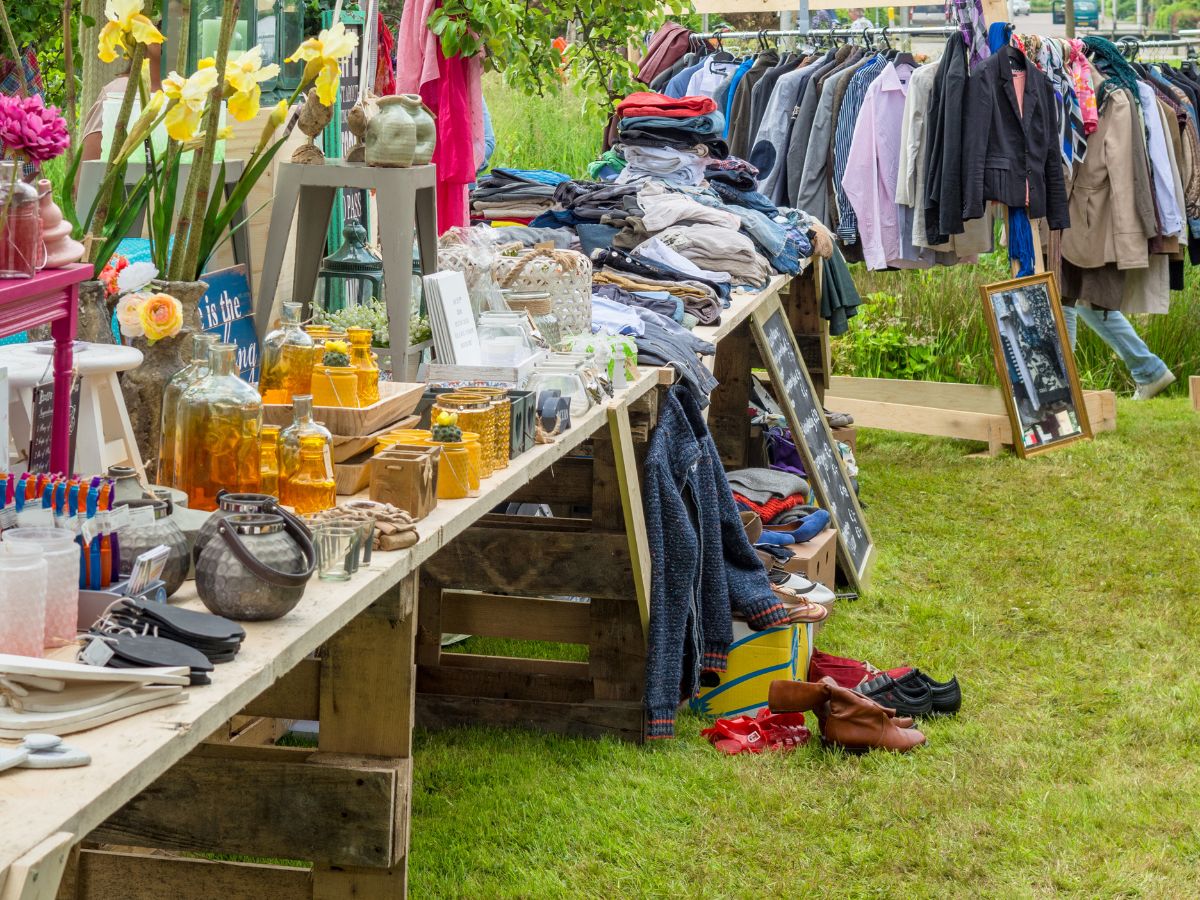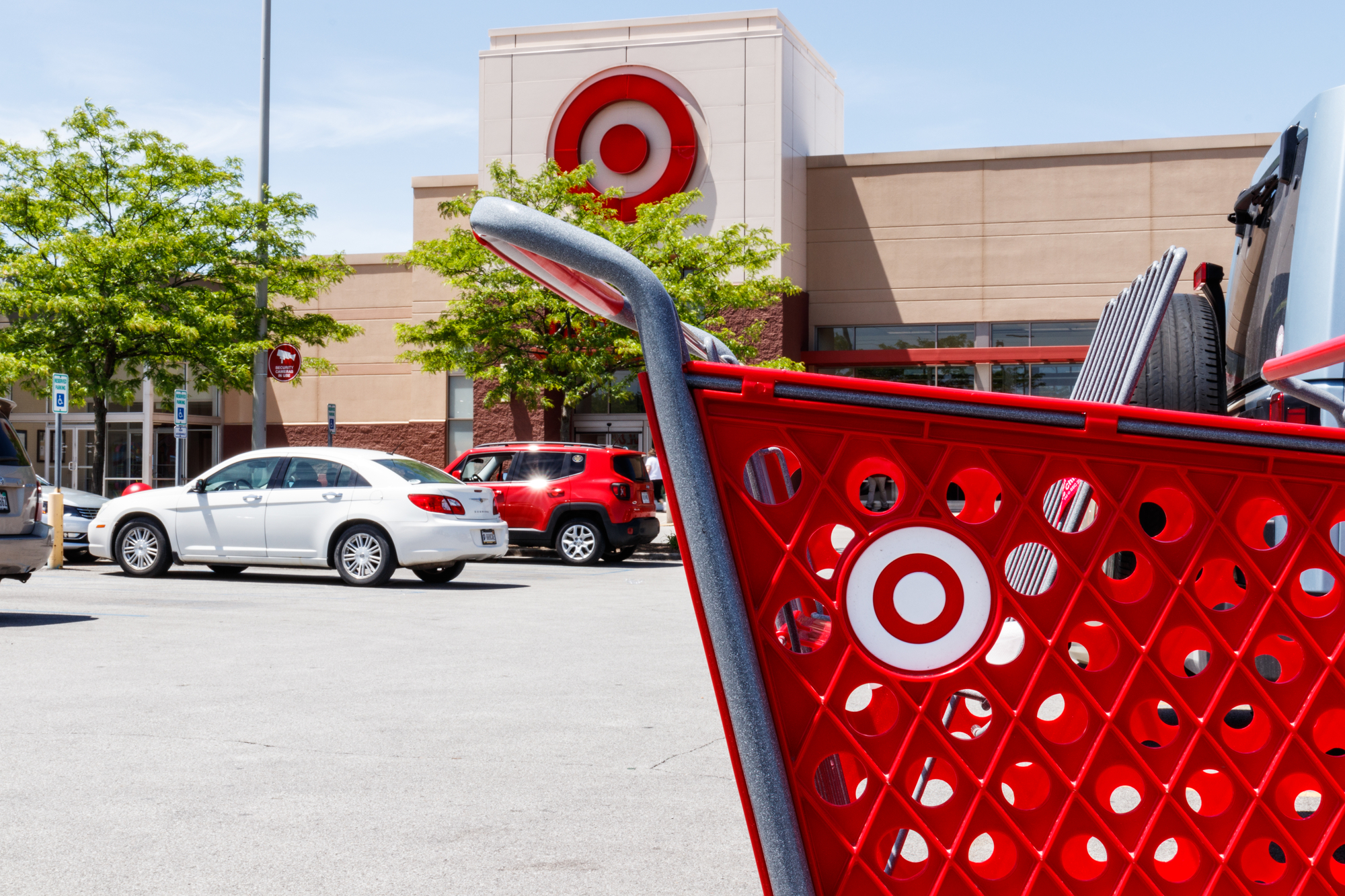This post may contain affiliate links.
Books have the power to transport us, stimulate our minds, and offer meaningful insights. While books hold value and significance in our lives, for many book lovers, letting go of cherished books can be a sentimental journey.
And despite the growing popularity of the Kindle and other e-readers, many book enthusiasts still value the tangible experience of holding a physical book.
If you’re a book lover facing a stack of books to part with, there’s an environmentally responsible way to handle it. Instead of contributing to greenhouse gas emissions by disposing of them in a landfill, consider exploring effective methods of book recycling.
Here are 16 responsible and eco-friendly ways to recycle and repurpose your old books and reading materials, giving new life to the pages and minimizing paper waste.
1. Sell It

One of the best ways to recycle and get rid of old books is to sell them. Selling your old books not only helps you recycle the book and give it a new home but also allows you to make some extra cash.
You can sell it online or through a local secondhand bookstore. Several retailers specialize in book reselling. Some popular book resellers include Half Priced Books, Amazon, Book Scouter, Powells Books, Ebay, and Abebooks. These online platforms are some of the best places to sell your used books.
You can also use an online platform like Direct Textbook or Flipsy, which are free services that allow you to check the value and current selling prices of paperback books, hardcover, and old textbooks that you want to sell on competing platforms. So whether you have a NY Times Best Seller, a textbook from English class, or a book by renowned authors like J.K Rowling or Emily Henry, selling it is one of the best ways to get rid of an old book.
2. Find a Little Free Library
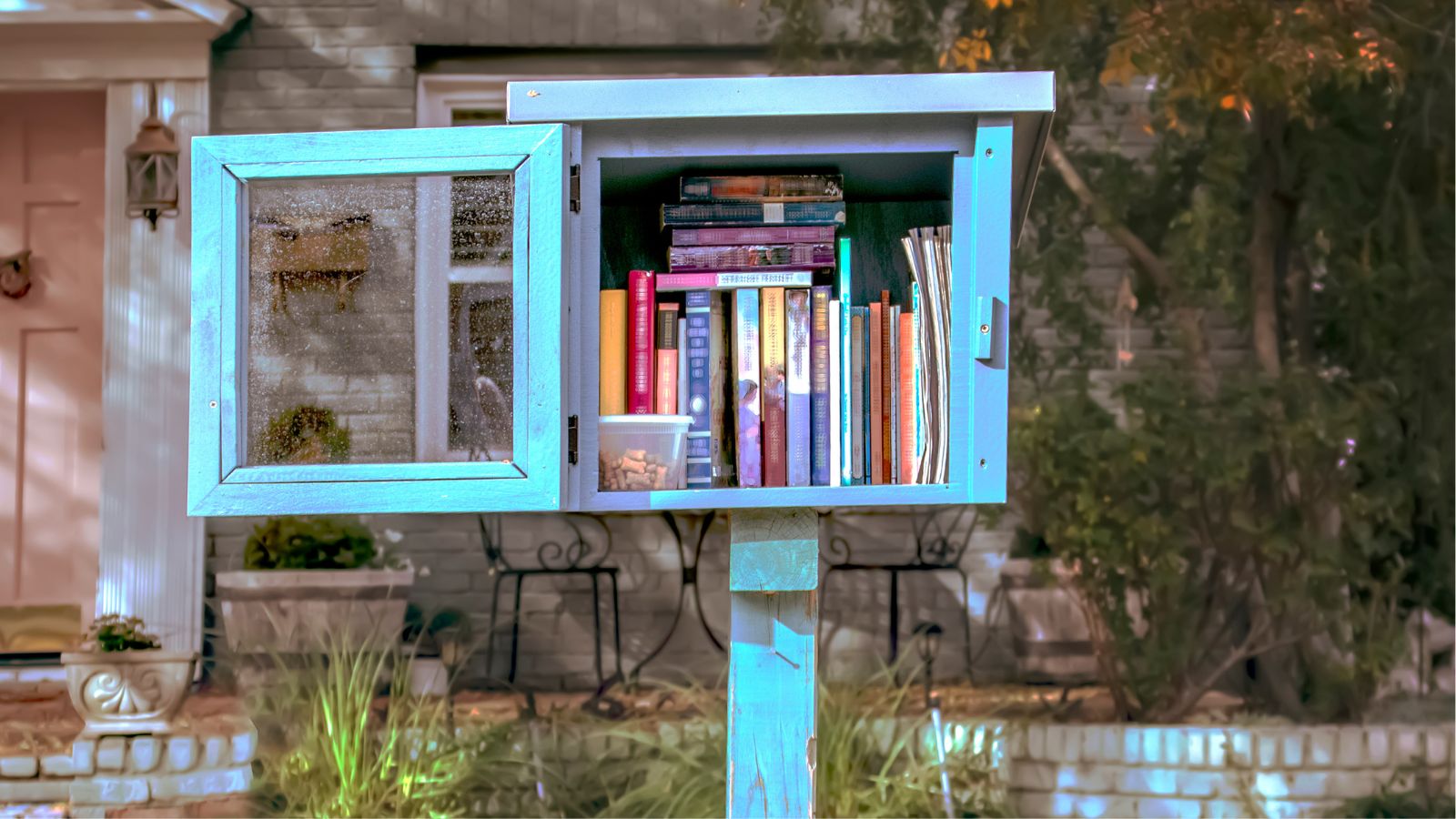
You might have noticed the “Little Free Library” in your area. Little Free Libraries is one of the largest book-sharing networks globally, and it plays a role in preventing books from being discarded. Creating a “Little Free Library” in your neighborhood is a wonderful way for neighbors to exchange and trade their books easily.
3. Donate to a Thrift Store

Most thrift stores like Goodwill, Salvation Army, and Value Village will gladly accept your used books. Donate them today, and these thrift stores will make sure these old books find a new home. Donating your books can also serve as a tax deduction later on.
25 Online Thrift Stores for the Best Second-Hand Shopping
4. Give to the Local Library

Many libraries are willing to accept donated books. Some even have drop boxes for convenient drop-off. However, it’s important to know that book donations can be declined if they’re in poor condition or significantly damaged.
5. Offer to a Local Shelter

Many homeless shelters will gladly take your donated books. Homeless shelters frequently seek new books to provide to their residents. Contact your nearby homeless shelter and inquire if they could benefit from your donation.
6. Donate to a Soldier

Programs such as Operation Paperback help to send books directly to soldiers in the US military. Once enrolled in the program, you can explore their databases to locate recipients for your available books and access addresses of soldiers seeking reading materials.
Offering books as care packages is a great way to express solidarity with our deployed troops, helping them find a touch of familiarity amidst their time away from home.
7. Host a Garage Sale or Yard Sale
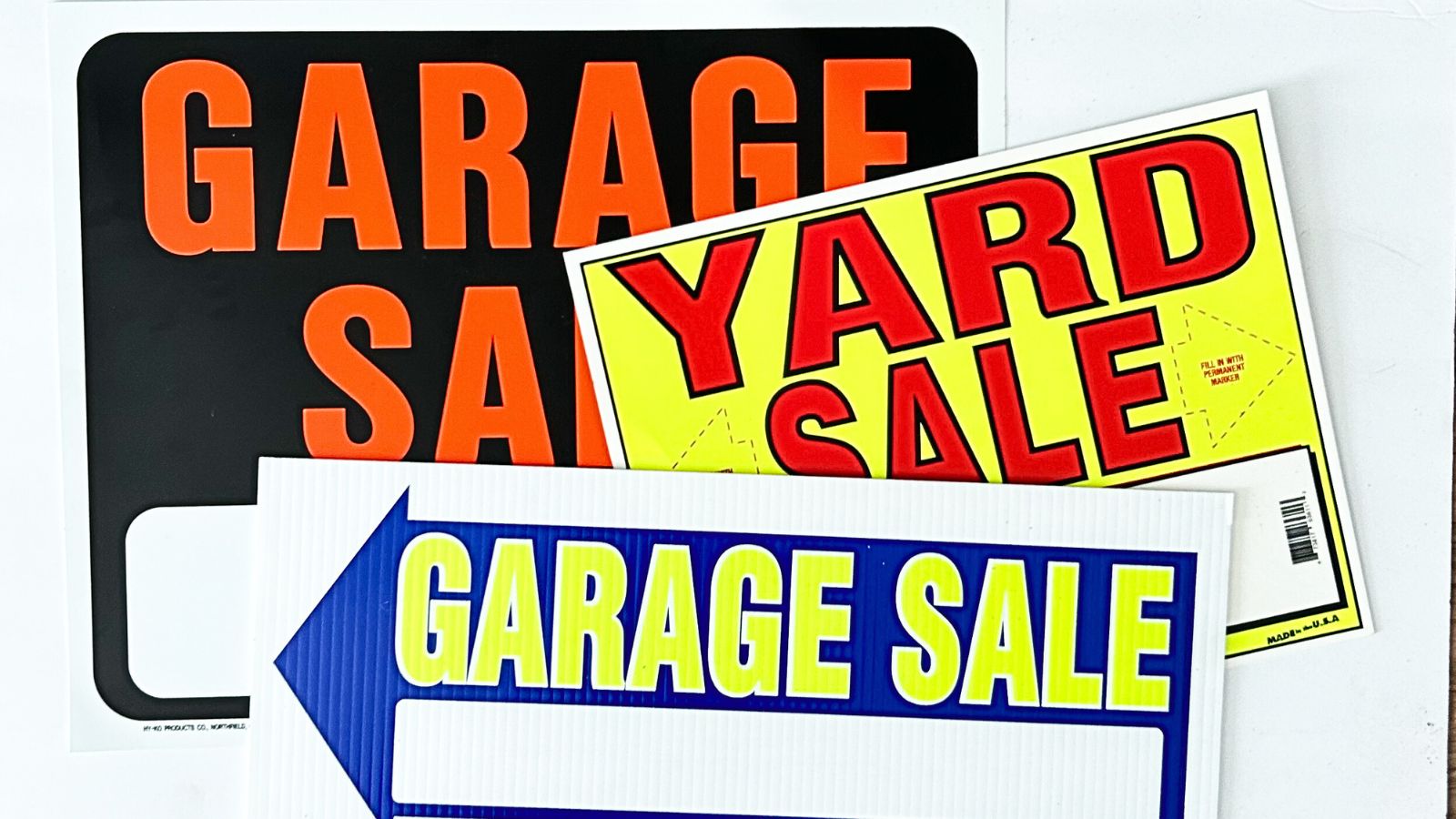
If you have a large book collection (along with other items you’d like to get rid of), hosting a garage sale or yard sale is a great way to offload your books. You can price them low, sell them in bulk, or give them away for free at your yard sales.
Best Garage Sale Finder Apps and Websites
8. Give to an International Charity Organization
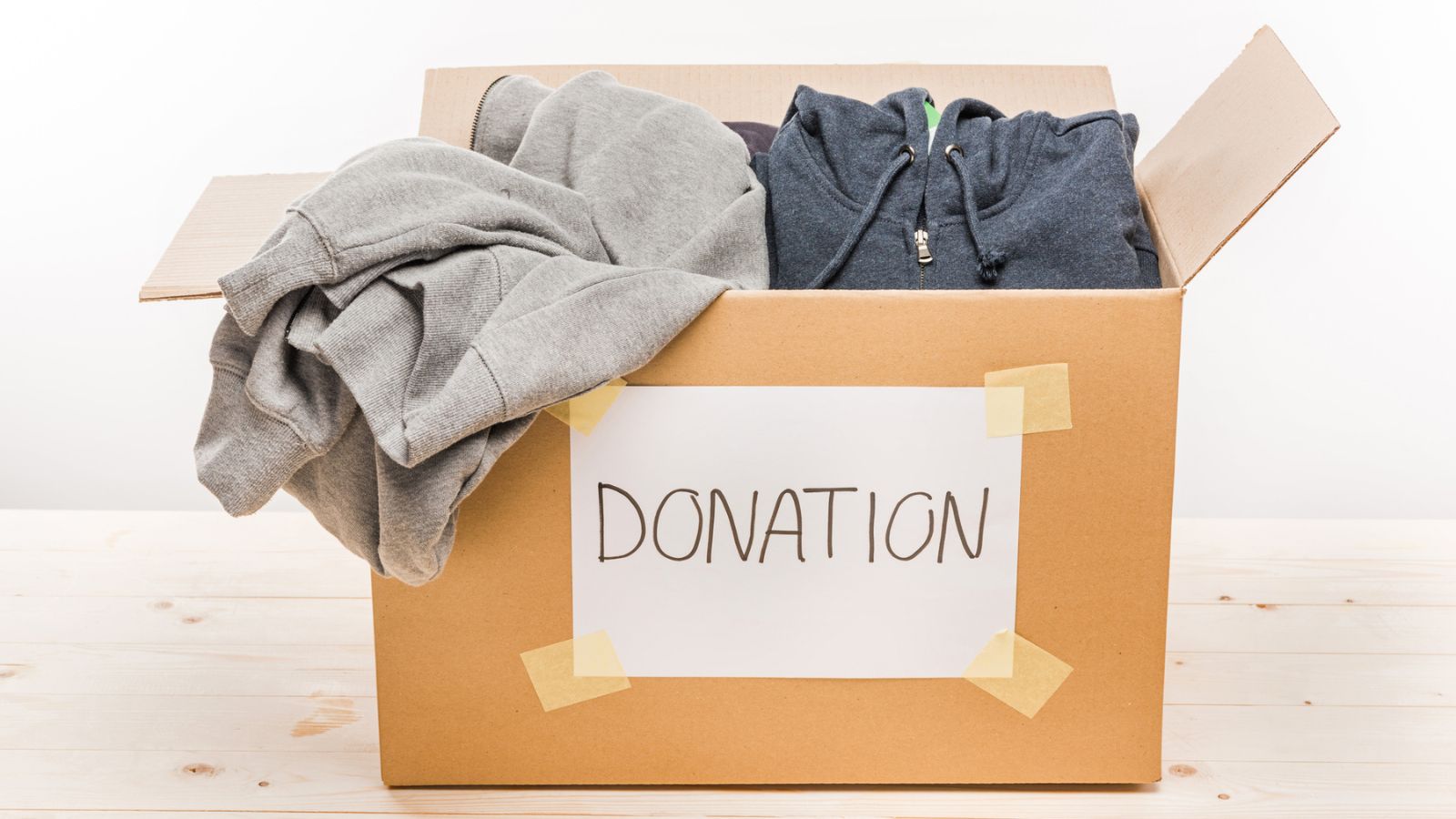
Donating books to international charities like Books for Africa and the African Library Project can extend the reach of your contribution and provide valuable resources to countries facing a scarcity of books.
These programs help fund literacy initiatives by gathering, organizing, and distributing books to students in these countries. The organization’s efforts involve sending out millions of books annually, aiming to address the shortage of reading materials in various nations.
9. Decorate with Books

If you have beautiful books in certain colors and styles, you can decorate your home with these books. You can accentuate a coffee table, mantle, or an entryway table with books for a unique touch to your home decor.
Simple Tips for Styling a Bookshelf
10. Retirement and Nursing Homes

Nursing homes and retirement homes are great places to donate your used books. Many of these places often need books for their residents. Before donating, consider reaching out in advance to inquire about their specific requirements. They may have an adequate supply of books, and any additional contributions could potentially create challenges for them.
11. Trade Books
Trading your books is another viable way to get rid of old books. You can trade your books on platforms such as Book Crossing, Book Mooch, Paperback Swap, and Title Trader. These platforms allow you to trade in books you no longer want for something else via their website.
Alternatively, you can set up a book exchange program in your neighborhood or offer to trade on social media. This can be done at a local neighborhood store, coffee shop, or community center.
Small coffee shops or local community centers often accept book donations or allow you to swap and trade books they keep for their patrons. It’s a great way to connect with your neighbors and book swap with someone who will appreciate it.
Plus, you might stumble upon a new favorite book in the process. It’s a worthwhile choice to keep books out of landfills.
12. Give to Your Neighbor or Friend

If you want to give away your old books without tossing them out, you can post an ad on free classifieds websites like Freecycle, Craigslist, or Buy Nothing Group on Facebook or offer your free books to a neighbor.
This is a great way to find a new home for your books and save them from being in the trash. People are more likely to take them if offered for free. And it will amaze you to find that what you consider trash can become someone else’s treasure, especially for the avid reader.
13. Repurpose Books
Similar to decorating, you can repurpose your old books. Pinterest can be incredibly helpful in discovering creative ways to repurpose old books.
14. Curbside Recycling Programs
Books in less-than-ideal condition, aging books, or old phone books can find a second life through curbside recycling initiatives. You only need to deposit them in the appropriate curbside recycling bin.
However, do keep in mind that for hardcover books, you might need to take the extra step of removing the cover. This is because book covers often contain materials like thread, plastic, and glue that need separate handling in the recycling process.
If, for some reason, your local area lacks a curbside recycling program, consider reaching out to local recycling depots as an alternative way to dispose of your books responsibly.
If you’re unsure about recycling services in your area or need to locate a recycling center specifically for college textbooks, you can go to Green Citizen’s Green Directory and search for one. Their directory will provide you with a list of recycling centers within 100 miles of your location. This way, you can conveniently find the nearest recycling solution for your books.
15. Use a Professional Book Recycler

Consider entrusting your books to a reputable recycling service like Load Up Junk Removal and The Book Rescuers. These book recycling companies specialize in collecting and transporting your books for eco-conscious disposal. Rest assured,
No books end up in landfills, and any that cannot be sold or donated undergo responsible recycling.
16. Donate to People Behind Bars

Many books-to-prison programs like Prison Book Program and Books Behind Bars will accept used books. These programs support and assist individuals in correctional facilities by sending them complimentary books and printed materials that align with their interests. Your books will help the programs support the inmates who want to read.
Numerous prisons and detention centers welcome charitable donations, particularly fiction, to stock their inmate libraries, offering valuable reading material for those inside.
By providing incarcerated individuals with books, you are helping them with access to reading materials and fostering a sense of connection with the outside world.
Why should you recycle your books?
Many books end up being discarded instead of being properly recycled. Recycling books not only helps to extend their lifespan but also minimizes the need for new book production.
It’s important to note that it takes just one tree to produce as many as 25 books. This overuse of paper products, especially books, significantly contributes to landfills reaching their limits.
The connection is clear: the more paper we consume, the more trees are felled, which has a substantial adverse impact on our environment. Conversely, when we actively recycle paper, we help reduce the demand for new trees to be cut down, thus promoting a healthier ecological balance.
By reusing materials, we can significantly reduce the consumption of trees, water, and energy required for book manufacturing. This, in turn, decreases the carbon footprint associated with the production process.
Recycling books prevents them from ending up in landfills, where they contribute to the release of greenhouse gases as they decompose. By diverting unwanted books from waste streams, we can mitigate the environmental harm caused by their disposal.
Are old books worth any money?
The value of old books can vary widely depending on several factors, including the book’s rarity, condition of your books, age, edition, author, and demand among collectors. Some old books can be worth significant money, while others may have little to no monetary value.
To determine the value of a specific old book, you may want to consult with a book dealer, appraiser, or use online resources like book valuation websites. Keep in mind that while some new and vintage books can be valuable, some books are not, and their worth is often sentimental rather than monetary. Books that are in the best condition, are often of greater value.
Other posts you might like:
- 8 Things You Should Recycle But Probably Don’t
- Don’t Toss Your Rusty Cast Iron Pan. Here’s How You Can Bring it Back to Life
- 15 Incredible Ways to Repurpose Used Coffee Grounds
Book recycling plays a vital role in reducing waste and preserving valuable resources. By recycling books, we can extend their lifespan, conserve trees, water, and energy, and reduce greenhouse gas emissions.
Consider donating or selling your old books if they are still in good condition. If not, ensure they are properly recycled by following the guidelines in your area. Support charitable organizations and programs that promote book recycling and sustainable practices in the book industry.
By taking these steps, we can all contribute to a more sustainable future where books continue to educate, inspire, and protect the environment. So, let’s embrace book recycling and help reduce waste while preserving valuable resources for future generations.
Feel free to share in the comments how you deal with old books when they’re no longer needed.
Tamara White is the creator and founder of The Thrifty Apartment, a home decor and DIY blog that focuses on affordable and budget-friendly home decorating ideas and projects. Tamara documents her home improvement journey, love of thrifting, tips for space optimization, and creating beautiful spaces.




